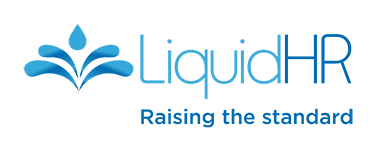‘She was excellent!’ I proclaimed, directly followed by vigorous nods and a chorus of agreement from the rest of the interview panel. Excited that we had found a ‘gem’, we spent the next ten minutes reinforcing our belief by offering impressive samples of the interview answers we had just received. Let’s take references ASAP I threw out as an after-thought whilst exiting the room, as if to imply that no matter what the result, we wanted this candidate. This was my first leadership role and to date, one of the most painful mistakes I have made in business.
Over the next 10 months the team was decimated by her unsubstantiated bullying claims, vitriolic rumours, aggressive behaviour, all creating a frighteningly unpleasant and unproductive work environment. How did I get this so wrong?? She interviewed brilliantly, she had solid experience and occurred as warm and sincere in her desire to ‘make a positive difference’.
At the time, I thought that perhaps I/we were doing something wrong. I was determined to coach and empathise, doing everything in my power to create a more harmonious team environment. I was dogmatic in my need to fix the issues, but the more consultative my approach the greater the issues became. As a new and hesitant people manager, I was wary of airing my team’s dirty laundry to the rest of the organisation, trying to maintain business as usual, but my attempt to pacify each erupting situation proved counterproductive.
The turning point and a degree of clarity came through an external psychologist that we had engaged to mediate an issue between the employee and another team member. I was told that she clearly possessed narcissistic personality disorder and continuing with the process was a futile endeavour.
We – after commencing performance management – received her 3-page resignation, citing in detail the monstrous way in which those in the organisation had treated her and not valued her contribution. I agonised over my decision to hire this person, even after the problem had been resolved. I was left so deeply disturbed by the experience that I promised myself I would do everything I could to avoid this again.
An extreme example, yes. But I consistently witness the risky recruitment practices that essentially caused this issue in the first place, playing out in other organisations. Perhaps not to the same extent, but a regular conveyor belt of sub-standard hires commencing and leaving shortly after, with hardly anyone batting an eyelid.
We need to understand two key points here.
1/ This is hugely detrimental to business effectiveness. Take your pick; time spent training and managing underperformers, the emotional impact on the team, the poor productivity and output. This ruins businesses.
2/ It doesn’t have to be a lottery. If your recruitment process consists of a generic interview and is based on gut feel, you’re setting yourself up to fail – trust me, I still have the scars to prove it! However, putting in place a rigorous combination of targeted assessments will dramatically improve your chance of recruitment success.
Please don’t get me wrong, recruitment is not an exact science, but we know for a fact that particular assessments used in combination, statistically improves the likelihood of not hiring an under-performer or bad cultural fit.
Not surprisingly, Liquid HR uses a combination of Emotional Intelligence assessments, Cognitive Assessments, Role Profiling and Structured Behavioural Interviews as a standard part of its recruitment process, internally and for clients. Perhaps if I had used this 8 years ago…..
For further information on recruitment support from a HR Consultant, call 1300 887 458










